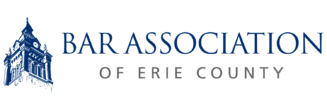ADMINISTRATIVE ORDER OF THE CHIEF ADMINISTRATIVE JUDGE OF THE COURTS
Pursuant to the authority vested in me, at the direction of the Chief Judge, and consistent with the Governor’s determination approving the easing of restrictions on commerce imposed due to the COVID-19 health emergency, I hereby direct that, effective July 27, 2020, notwithstanding the terms of any prior administrative order, the following procedures and protocols shall apply to the conduct of residential and commercial foreclosure matters before the New York State courts:
- Stay of Commencement and Enforcement of Commercial Foreclosure Matters: Consistent with Executive Order 202.28, “[t]there shall be no initiation of a proceeding or enforcement of … a foreclosure of any … commercial mortgage, for nonpayment of such mortgage, owned … by someone that is eligible for unemployment insurance or benefits under state or federal law or otherwise facing financial hardship due to the COVID-19 pandemic” for a period ending on August 19, 2020.
- Filing and Service: Filing and service of process in residential and commercial foreclosure proceedings shall continue as set forth in Administrative Order AO/ 121/20 (Exh. A), as amended.
- Procedures in Pending and Newly-Filed Matters: Except insofar as a matter may
be stayed or otherwise governed by Governor Cuomo’s Executive Orders 202.8, 202.14, 202.28, 202.38, and 202.48, residential and commercial foreclosure
matters may proceed as set forth below. - Conferences:
a. Prior to conducting any further proceedings in any foreclosure matter, the court must initiate a status or settlement conference (including, where applicable, a settlement conference pursuant to CPLR Rule 3408). If any party does not appear at the conference, the court shall reschedule and
make a second attempt to hold the conference before undertaking further proceedings.
b. At the conference, the court shaJI review the procedural history of the
matter; confirm compliance with notice requirements, inquire into the
effects, if any, that the COVID-19 pandemic has had upon the parties;
review any special relief under state or federal law to which the parties
may be entitled in light of the pandemic; refer unrepresented parties to
local civil legal service providers and housing counseling agencies; assess
any pending and anticipated motions; approve briefing schedules
proposed by stipulation of the parties; and use best efforts (including
referral to alternative dispute resolution) to resolve any outstanding
issues. - Remote Proceedings: Any foreclosure conference or proceeding will be conducted remotely to the fullest extent practicable.
- Motions: Following the conference in a foreclosure matter, the court may (I) direct further briefing of any motion as needed, and (2) issue a decision on any motion, including a motion for foreclosure and sale. Pending and newly-filed motions may be considered and decided in all foreclosure matters — including residential and commercial matters, matters in which one or both parties are selfrepresented, and matters commenced prior to and during the COVID-19 pandemic. In ordering relief in a commercial foreclosure matter, the court shall stay enforcement if and as required under Executive Orders 202.28, 202.48, and related Executive Orders.
- Auctions: a. Continued Suspension of Auctions: No auction or sale of property in any residential or commercial foreclosure matter shall be scheduled to occur prior to October 15, 2020. b. Assessment of Auction Practices: Prior to September I, 2020, the appropriate administrative judge for civil matters in each judicial district shall develop appropriate procedures and protocols for the safe and healthful conduct of such auctions within their districts in light of the COVID-19 pandemic.
- Other Applications and Hearings: Courts may entertain other applications in foreclosure matters, including but not limited to post-judgment applications. Where necessary, courts may also conduct hearings, including but not limited to good-faith hearings pursuant to CPLR 3408(£). All such hearings will be conducted remotely to the fullest extent practicable.
- This order shall not affect procedures for the filing and service of essential matters, and otherwise supersedes the provisions of any Administrative Order inconsistent with its terms.
Judge Lawrence K. Marks, Chief Administrative Judge of the Courts

